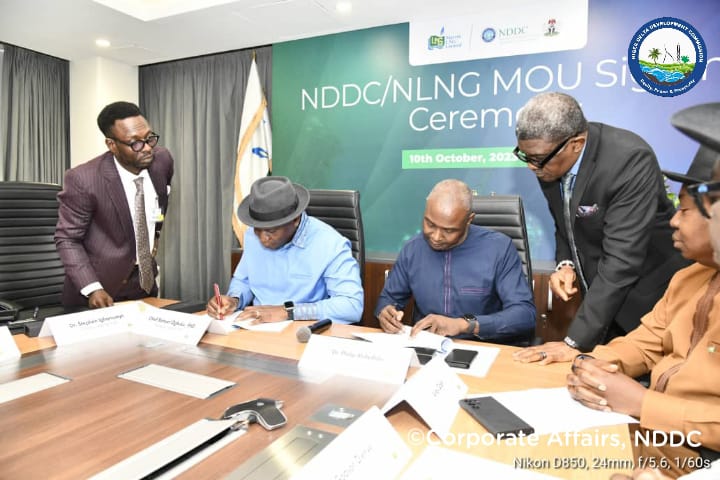BY TIMI OLAGUNJU
The Ministry of Communication, Innovation and Digital Economy’s (MoCIDE) strategic plan for Nigeria’s digital future is commendable. It lays the groundwork for a vibrant digital economy through five pillars: knowledge, policy, infrastructure, innovation, entrepreneurship and capital, and trade. However, to transform this plan from a mere business proposal into an actionable policy with tangible outcomes, I advocate for the creation of a robust policy roadmap (PR). This article provides a critique of the current strategic plan, and policy recommendations, assigns agency responsibilities, and draws lessons from global best practices.
The MoCIDE’s strategic plan outlines an ambitious vision. However, to realize its full potential, we must transition from broad objectives to specific, achievable policies. The creation of a policy roadmap (PR) is essential for effective policy implementation.
On Pillar 1 [Knowledge – A Hub for Technical Talent]: Nigeria aims to become a technical talent hub and enhance global research. National Information Technology Development Agency (NITDA) is well-suited to lead this effort. NITDA should collaborate with educational institutions and the private sector to drive tech talent development. Models from South Korea and Finland offer insights into building successful tech education programs and innovation ecosystems.
Advertisement
On Pillar 2 [Policy – A Catalyst for Innovation]: MoCIDE, in collaboration with relevant ministries and agencies, should spearhead policy initiatives. Policy direction and collaboration with entities like the Ministry of Industry, Trade, and Investment are vital. We must study the policy best practices of leading nations like the United States and China to foster innovation and protect intellectual property.
On Pillar 3 [Infrastructure – The Backbone of a Digital Economy]: For a robust digital infrastructure, NITDA, Nigerian Communications Commission (NCC), and Nigerian Communications Satellite Limited (NIGCOMSAT) play pivotal roles. They should attract private sector investments in digital infrastructure and learn from countries like Switzerland and Singapore regarding rural broadband deployment and digital inclusion. NIGCOMSAT should innovate to unlock revenue potential and bolster Nigeria’s digital infrastructure.
On Pillar 4 [Innovation, Entrepreneurship, and Capital Access]: NITDA is the ideal agency to expand the innovation ecosystem, but accountability is crucial. MoCIDE, collaborating with entities like the Nigerian Stock Exchange, Bank of Industry, CBN, and investors’ groups, should work to increase patient capital availability. Sector-specific support requires cooperation with relevant ministries and private stakeholders. Success stories from Israel, Switzerland, and South Korea can guide our efforts.
Advertisement
On Pillar 5 [Trade – A Global Technology Player]: NITDA should lead in improving Nigeria’s Economic Complexity Index (ECI) ranking. Collaboration between NCC and the Nigerian Postal Service (NIPOST) is necessary to grow intra-African trade. Successful trade models from Singapore and Mauritius can provide insights.
General recommendations
- Develop detailed implementation plans: Collaborate with policy consultants and key directors across agencies to create detailed policy documents outlining roles, responsibilities, and specific success indicators.
- Engage external agencies: Extend collaboration beyond the ministry to agencies like the Office of the National Security Adviser, the National Office for Technology Acquisition and Promotion (NOTAP), and the National Frequency Management Council (NFMC).
- Evaluate overburdened agencies: Assess whether certain agencies, like NITDA, are overburdened and consider the creation of new agencies, as done with the National Data Protection Commission (NDPC).
- Address Cryptocurrency Ban: Recognise the need to address the cryptocurrency ban’s impact on innovation. A blockchain innovation policy should consider lifting the ban and developing a framework that encourages innovation while protecting the financial system.
- Learn from successful models: Continuously study successful international models relevant to each pillar of the MoCIDE strategic plan.
In conclusion, the ministry of communication, innovation and digital economy’s strategic plan holds immense promise for Nigeria’s digital future. However, to transform this vision into reality, we must shift from aspirations to concrete policies. Collaboration between government agencies, the private sector, and international partners is essential to building a thriving digital economy in Nigeria. With the creation of a comprehensive policy roadmap, Nigeria can truly shape its digital destiny.
Olagunju is a foremost tech lawyer and policy consultant with more than a decade of experience in technology policy and regulations. He can be reached on LinkedIn or Twitter.
Advertisement
Views expressed by contributors are strictly personal and not of TheCable.
Add a comment






